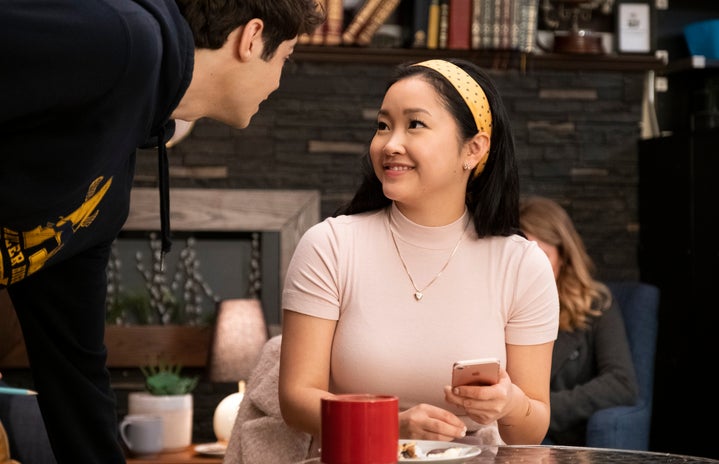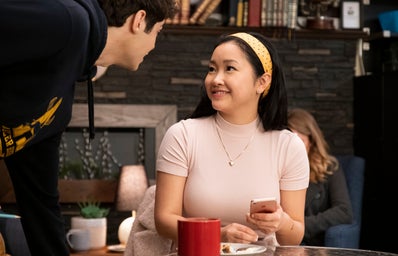The “I’m not like other girls” trope is a popular trope that has been around for decades. The main character of teen movies would not exhibit traditional femininity and would deem herself to be “not like other girls.” The irony of this trope is that the main character of these films was meant to be relatable to the general public and yet she was not like other girls.
This trope is harmful because it vilifies femininity. The counterpart of the main character is usually a hyper-feminine, dumb, mean girl. The juxtaposition of these characters promotes the notion that young girls should not strive for femininity because it is synonymous with villainy. This results in internalized misogyny as impressionable young girls believe that their validity comes with rejecting their femininity. They try to emulate masculine characteristics because that’s what they’re shown they must do to be valued.
A major signifier of this trope is Bella Swan from Twilight. Bella doesn’t care for girly things, like prom, unlike her friend, Jessica. Bella is often clad in grey or green whereas her counterpart, Jessica, is often seen wearing pink. These costume choices make the two girls’ differences in values more apparent. Although Jessica is not portrayed as a villain, her values are seen as inferior to Bella’s even though Bella is in love with a 108 year old vampire; but, God forbid Jessica cares about what her prom dress will look like.
Another major plot point that pushes this behavior on young girls is that the boy Jessica is interested in shows interest in Bella and Jessica spends a lot of time worrying about which one of the two he will ask to prom. Boys being interested in Bella, especially Edward Cullen who pays no mind to every other girl at the school, insinuates that this behavior results in male validation—another idea that young girls often seek.
In the early 2000’s, the only feminine main character that I think was done right was Elle Woods from Legally Blonde. Elle was originally depicted as a feminine, “dumb” character because she was in a sorority, loved pink, and was studying fashion merchandising. Once her boyfriend breaks up with her because she’s “too blonde,” she studies for the LSAT and gets into Harvard Law School—what, like it’s hard?
The importance of Elle’s character is that she never ditches her femininity to become a strong character; her feminine traits are ultimately what helps her achieve all her goals as well as help others. Even when Elle tries to be more serious about being a lawyer, her all black outfits are still trendy and stylish, just sophisticated.. At the end of the film, she returns to dressing in all pink and embraces her femininity ultimately winning the case. This is not very common for female leads.
The only main character I can think of in the past couple years that doesn’t adhere to the “I’m not like other girls” trope is Lara Jean Covey from To All the Boys I’ve Loved Before. Lara Jean is seen fantasizing of being a princess and wearing dresses, skirts, pink—your run of the mill “girly girl” in the best way possible.
Like many other female leads, Lara Jean is an introvert with few friends but the relationship she has with her best friend exhibits a healthy, strong female friendship. She’s not depicted to be better or above her friend simply because she’s the main character. There’s also a “mean girl” in the film, but she’s multi-faceted and her “mean girl” exterior roots from a disagreement she had with Lara Jean when they used to be friends rather than the way she expresses her femininity.
Another major flaw of this trope is that the “not like other girls” girls reject femininity to avoid prioritizing male validation. Although, by doing this, they end up with every male character’s attention. This implies that in order for girls to receive male validation and attention, they need to portray themselves as more masculine. Films shouldn’t be pushing the notion that girls need to assume more masculine traits to be valued, or even that male validation is a necessity.
There needs to be more characters like Lara Jean and Elle Woods which would ensure that the next generation of girls wouldn’t grow up with internalized misogyny and wouldn’t believe that femininity is inherently wrong. It’s important to recognize that liking things that are traditionally masculine is completely fine but they shouldn’t be seen as what young girls are supposed to like. Young kids are impressionable; that’s why characters like Lara Jean and Elle Woods are so impactful. They show that it’s okay to be feminine and one can still be strong and smart while liking girly things.


